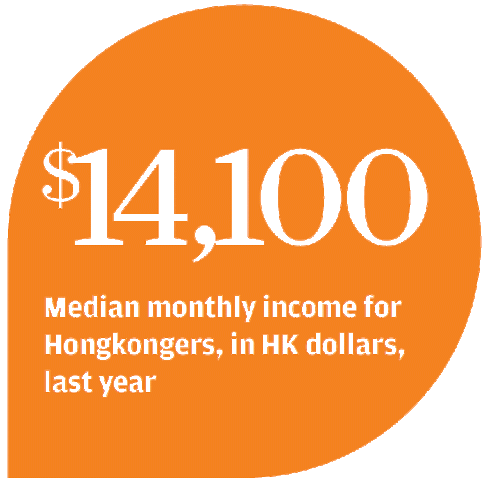
On the tourism front line, low-paid shop staff set HK$1 million monthly sales target
Low basic pay and high sales targets criticised by trade union, which says cost-cutting bosses make it hard for store staff to earn commission

Hong Kong's tourism industry may be in the midst of an unprecedented boom, but frontline workers aren't sharing in the benefits - with store staff set sales targets of as much as HK$1 million per month before they can earn commission, a unionist says.

Cheung's claims will stoke the debate about whether explosive growth in visitor numbers is truly benefitting Hongkongers or simply leaving streets too crowded and rents too high.
The monthly sales target for an employee selling electronics or mobile phones in bustling Mong Kok has hit HK$1 million, Cheung says, much higher than in quiet residential areas. They might receive three per cent of sales as a commission, but even that has a sting in the tale.
"The biggest problem about the retail sector is a low basic salary," she said. "People work very hard to earn commission by meeting targets. But once they manage to do so, bosses again raise the target. It is frustrating."
Government figures show that visitor arrivals rose from 29.6 million in 2009 to 54.3 million last year, boosted by big-spending mainlanders often coming to shop. Retail and catering workers saw wages rise by more than the rest of the workforce during those four years, although salaries in the sector still lag behind the average.
While the median wage for all workers rose by 23 per cent in those four years to HK$14,100 per month, catering staff saw their pay increase 32 per cent, travel agency workers earned 29 per cent more and store staff saw wages rise by 27 per cent. But median wages for all three sectors remained between HK$10,000 and HK$12,000.
Wong Pit-man, head of the Eating Establishment Employees General Union, said tourism and weddings had been the biggest drivers of growth in the catering sector in recent years.
"In busy districts, up to 70 per cent of clients are individual travellers from the mainland," he said. While workers in tourist hubs like Yau Tsim Mong and Causeway Bay could earn HK$1,000 to HK$2,000 more than those elsewhere, they would also work later, perhaps for 10 to 13 hours a day.
And another factor may have had just as much of an effect on pay in the three sectors: the minimum wage introduced in 2011. For example, security guards saw wages grow 45 per cent in the same four-year period despite having few obvious connections to the tourist industry.
"It seems to me that the minimum wage has played a role here," said Dr Leung Tin-cheuk, an assistant professor of economics at Chinese University.
Leung said increasing the supply of land for commerce was crucial to spreading the benefits. Unless more space could be found for shops, rents would skyrocket but there would be little competition to hire staff and no need to pay them more.
A government report earlier this year found that tourism contributed 4.5 per cent of the city's gross domestic product and offered over 230,000 jobs, including about 40 per cent of retail jobs.
Although the report concluded that Hong Kong could cope with a further increase to an estimated 70 million visitors in 2017, citizens were not convinced.
This month, Chief Executive Leung Chun-ying said his administration was studying ways to "regulate" tourist numbers.